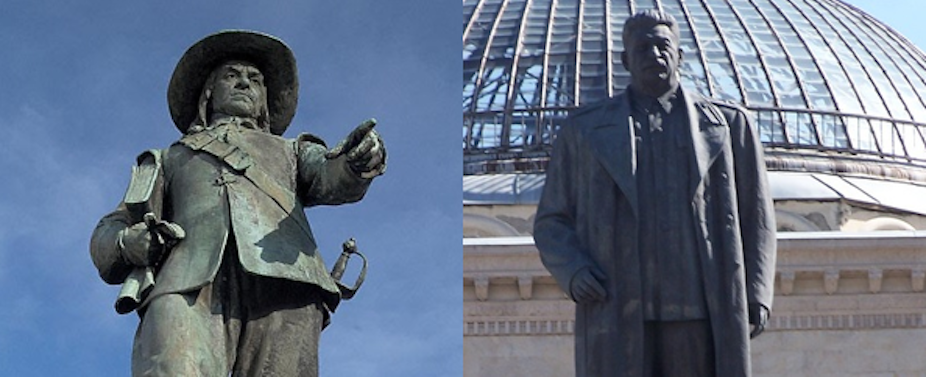Imagine if there were a premier league for tyrants and totalitarian dictators. Who exactly was the biggest genocidal maniac? Was it Stalin, or Hitler, or Pol Pot, or…?
However you add it up, especially among 20th-century exponents of the art of mass murder, Stalin would certainly be jockeying for head of the field. So, when Vladimir Putin – in some sense his successor at the head of the Russian State – posed the question, “What is the difference between Stalin and Oliver Cromwell?”, and answered, “None whatsoever”, one’s first reaction is probably a firm, “NYET!” But the second, surely, is, “and yet …”
Let’s do the maths. Cromwell killed far fewer (thousands vs millions) – but then again, as Putin might doggedly argue, there were far fewer people (in Ireland and elsewhere) for him to kill, so proportionately it works out about the same. On this measure, Putin may have a point – but why stop at Cromwell and Stalin?
There is plenty of scope here for other tyrants to make a claim. I predict that Kim Jong Un will soon be comparing himself to Elizabeth I or Sir Francis Drake. Historical comparisons are irresistible and occasionally persuasive.
Napoleon – who started off as a would-be historian and only took to being emperor on account of getting derisive comments from an examiner on one of his essays (“a most pronounced dream”) – compared himself to, among others, Jesus, Muhammad, Alexander the Great, and Plato. He preferred Homer to Virgil, Corneille to Racine. On St Helena, he reckoned he really would have preferred to be a witty and pugnacious Left Bank critic. In other words, he was a classic Enlightenment intellectual.
It wouldn’t surprise me if Stalin had compared himself to Tolstoy or – more plausibly – Dostoyevsky (The Grand Inquisitor?). Pol Pot invoked the ghost of Jean-Jacques Rousseau and, for all I know, Shakespeare. And not to be left out of this game, I want to sketch out another comparison: between reason and unreason.
Thinkers can be stinkers
Intellectuals love to think of themselves as au-dessus de la mêlée (above the battle): “Those guys over there are the bad guys. They should be more like us.” Surfers, oddly enough, are a bit similar (another absurd comparison?). I happened to be in Hawaii at the outbreak of the first Gulf War and a fellow wave-rider at Waimea Bay remarked: “If only Saddam could surf …” In other words: If only Stalin [or insert name of any other mass murderer] could write poetry! The thing is, he did.

Napoleon, of course, wrote his first major Rousseauesque “discourse” on the subject of Happiness. When he invaded Egypt he took along with him a massive portable library on the back of a converted cannon, as well as the 150-strong “Commission of the Arts and Sciences”, including many of the top intellectuals of the time (although some of the wiser ones chickened out).
So ideas and intellectualism have never been in opposition with killing. Jaw-jaw is always poised on the brink of war-war. You could even say (as, for example, Edward Said argued in Orientalism) they have been in league with each other – that there is sometimes collaboration between scholars and soldiers, books and brutality. But I think we can go further than that: ideas are often a useful pretext for killing other people.
All holocausts are preceded by a theory of the apocalypse, a vision, an idea, an argument. Every Holy Book – and under that heading I include Das Kapital and The Social Contract – has always been an opportunity for a beheading or two.

